Giving back: 2023 Wendy Jones Equality Award and Impact Award winners
The Wendy Jones Equality Award
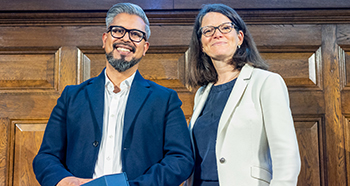
“Racism in the modern workplace doesn’t look like what it looked like when I was younger”
A unique position
The Impact Award
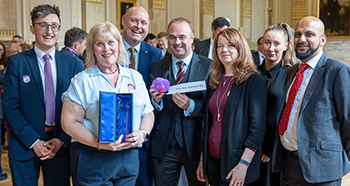
The FDA Procurator Fiscal Section (PFS) was named winner of the Impact Award at this year’s Annual Delegate Conference, for its role in securing a pay deal for prosecutors in Scotland worth up to an extraordinary 56%. FDA General Secretary Dave Penman presented the award to the PFS Secretary Fiona Eadie and Convenor Angela Farrell, who accepted the award on behalf of the section.
The Procurator Fiscal Section’s Equal Value, Equal Worth campaign resulted from over a decade of campaigning to ensure prosecutors in the Crown Office and Procurator Fiscal Service were paid the same as their counterparts in Scottish Government. The section successfully gained widespread support from across the legal profession, including the support of their Scottish Government colleagues and the Law Society of Scotland, meeting with the Justice spokesperson for each major party and giving evidence to the Scottish Parliament’s Justice Committee. To gain political engagement, members lobbied their MSPs and the committee organised a postcard campaign to command the attention of the Cabinet Secretary for Finance to deal with the long-standing dispute.
In 2019, the FDA and the COPFS management jointly submitted a business case that sought funding to address the pay inequity. However, during lockdown, when prosecutors were given the status of keyworkers but this funding was still not forthcoming, the section moved for industrial action. An indicative ballot showed 95% support.
This opened up the space needed to resolve the dispute, with ministers entering in-depth negotiations with FDA officials. March 2021 saw FDA members receive a pay offer that would finally result in pay parity and also secured the political and financial commitment to keep pace with salaries in Scottish Government in the future. The offer was voted on and overwhelmingly accepted by members.
After the offer was accepted, Eadie said: “The implementation process was not straightforward and was dependent upon a job evaluation process. The PFS Section therefore had to work hard to maintain the confidence of members throughout that process, the eventual merger of one of the grades and discussions around the implementation approach.”
The pay award in COPFS for 2022/23 was the culmination and final implementation of the three-year deal and has seen prosecutors in COPFS finally achieve pay parity with their Scottish Government colleagues.
Eadie said the deal “has seen rises for our trainee solicitor members of between 33-38%. The starting salary for first level line managers has risen by 19% and for the next level line managers, their starting salary has risen by 26%. The most dramatic rises however were for our newly qualified lawyers, whose starting salaries rose by an astonishing 56%.”.
On receiving the award, Farrell said: “I am delighted that our successful pay parity campaign has been recognised with this award and I am extremely proud to have been part of this campaign, the success of which could not have been achieved without the tireless work of our National Officer, Allan Sampson and our section Secretary, Fiona Eadie and the passionate commitment of our branch representatives and most importantly our members, without whom we could not have succeeded in reaching pay parity.”
Related News
-
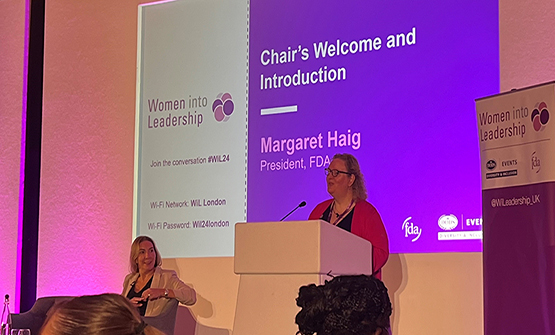
“Know your worth and assert your presence”: report from Women into Leadership London
“Know your worth and assert your presence”: report from Women into Leadership London
-
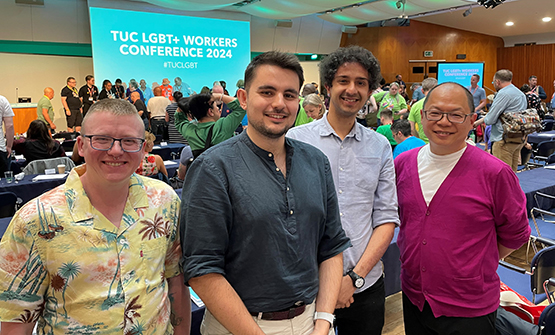
FDA at the TUC LGBT+ Workers’ Conference 2024
An FDA’s delegation attended the TUC LGBT+ Workers’ Conference 2024, engaging with the wider trade union movement and to share issues and priorities with other unions.
-
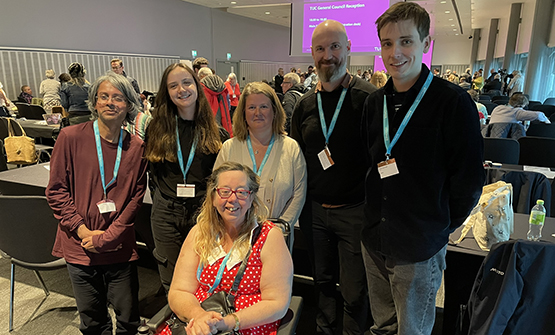
FDA at the TUC Disabled Workers’ Conference 2024
The FDA sent a delegation of six members to the TUC Disabled Workers’ Conference 2024